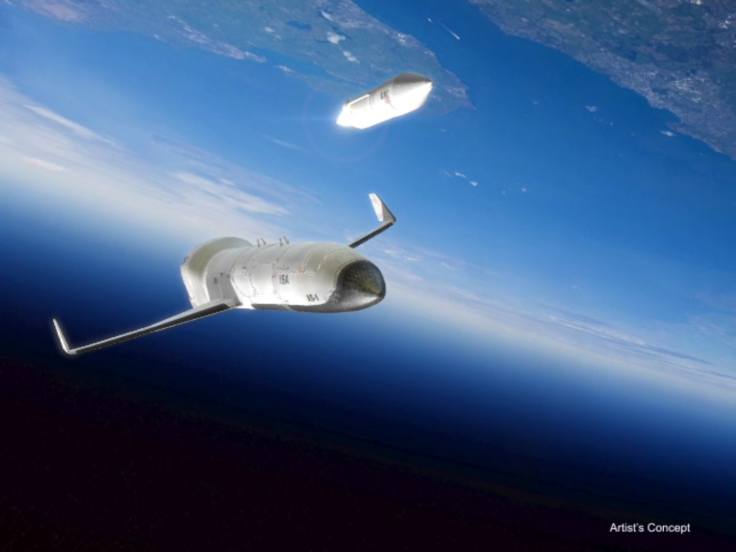Bezos, Branson & Boeing Get DARPA Nod For Space Drone Work

Getting things into space is expensive these days, and the U.S. government needs help.
The Pentagon’s Defense Advanced Research Projects Agency (DARPA), which has been developing government technology since the Sputnik days, is tapping corporate talent like Jeff Bezos and Richard Branson for its latest project. “We chose performers who could prudently integrate existing and up-and-coming technologies and operations, while making XS-1 as reliable, easy-to-use and cost-effective as possible,” the agency’s program manager Jess Sponable said in a public statement.
Rockets were traditionally used to get satellites into space but they were only able to be used once, to the tune of millions of dollars for each launch. Now, DARPA wants to create an unmanned plane that would take off like a regular aircraft and fly high enough to launch a small satellite into orbit before returning back to Earth.
To do this, they agency has awarded contracts to three companies, hoping one of them can create a plane that could do the job efficiently.
One candidate is The Boeing Co. (NYSE:BA,) which is working with Jeff Bezos’ private aerospace venture Blue Origin.
DARPA also named Northrop Grumman Corp. (NYSE:NOC,) which has partnered with famed billionaire Richard Branson’s Virgin Galactic, LLC.
The third company listed is Masten Space Systems, an aerospace startup founded in 2004 based in Mojave, California. It’s partnered with XCOR Aerospace, a private rocket engine and spaceflight company.
“We’re eager to see how their initial designs envision making spaceflight commonplace -- with all the potential military, civilian and commercial benefits that capability would provide,” Sponable added.
The models must be able to travel to a “suborbital altitude” carrying a satellite that can weigh anywhere from 3,000 to 5,000 pounds, launch it into the atmosphere and return to earth for less than $5 million.
More traditional rocket launch methods typically cost hundreds of millions.
© Copyright IBTimes 2024. All rights reserved.












